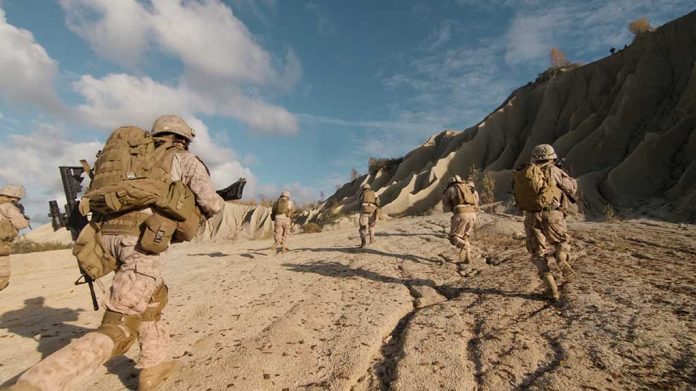
Well, it seems like when it comes to Iran, every day is a new episode of “just when you thought it couldn’t get worse.” The Biden Administration, in a move that reminds us why we still value a firm military stance, is bolstering our military presence in the Middle East. Increased Iranian threats have made this region a bit too spicy for comfort, and Uncle Sam’s decided it’s time to sprinkle in some good old American deterrence.
Heightened Threats from Iran
In a strategic, carefully calculated deployment, Washington has ramped up its military power in the Middle East following reliable intelligence pointing to potential Iranian attacks. Iran, never one to shy away from playing the regional villain, has advanced its nuclear program to the brink where it’s almost capable of producing weapons-grade materials. Since the U.S. withdrew from the JCPOA in 2018, Iran’s accelerated nuclear activity has been a thorn in global stability’s side.
Regional Threats and Proxy Militias
Iran’s bag of tricks also includes ballistic missiles and cyber capabilities, adding to the chaos through proxies in Iraq, Yemen, Lebanon, and Syria. It’s like a twisted game of “Risk,” with each piece moved to create instability and provoke regional tension. Even more concerning, Iran aligns itself with authoritarian buddies like China and Russia, leveraging economic and strategic support to undermine Western sanctions.
Middle East: The Arena of Great Power Competition
“The United States faces increasing competition in the region from Russia and China both vying for power and influence through a combination of diplomatic, military, and economic means,” Marine Corps Gen. Kenneth F. McKenzie said in the keynote address at the institute’s virtual convention.
Russia and China are playing their own game, exploiting regional crises and financial needs to gain a foothold. Russia’s aims are twofold: economic motives such as arms sales and establishing military bases in Syria and Sudan, and a broader ambition to reclaim global power status. Meanwhile, China, hungry for Middle Eastern oil, extends its influence through trade, investments, and the Belt and Road initiative.
Strategic Commitments and Regional Stability
The U.S. demonstrates its commitment to regional stability by defending its allies and interests. President Joe Biden praised American forces for intercepting “nearly all” drones and missiles fired by Iran, showing a robust defense posture. “Ironclad” support for Israel is reinforced by intercepting “dozens of missiles” from various conflict zones targeting Israel.
Broader Implications for Global Security
Let’s not forget, the Middle East’s tranquility—or lack thereof—directly impacts the global economy. Oil flow disruption is bad news all-around, whether you’re filling up your SUV or running an industrial empire.
President Joe Biden’s recent promises to Israeli Prime Minister Benjamin Netanyahu assure that America won’t be engaging in offensive actions against Iran, which is crucial given the heightened risk of a broader regional conflict following suspected Israeli strikes on Iranian facilities.
Normalization of Relations and Strategic Opportunities
Interestingly, recent normalization of relations between Israel and several Arab nations, thanks to the Abraham Accords, presents a glimmer of hope. A stronger, united Middle Eastern front could create a buffer against Iranian aggression and open up strategic opportunities for lasting stability.
As we watch the U.S. step up and reaffirm its commitment to global security, it’s clear this isn’t just about military might. It’s about maintaining a balance in a region fraught with complexity and ensuring that our allies—and our interests—are well-protected.
So, to those who think this is just another “Middle Eastern quagmire,” remember, it’s a necessary stand for stability, security, and, yes, a bit of American grit.
Sources
- Addressing Iran’s evolving threats to US interests
- Great Power Competition Adds to Challenges in Middle East
- US helps Israel shoot down ‘nearly all’ Iran-launched attack drones as Biden pledges support
- Strategic Reengagement in the Middle East
- Attacks on United States Personnel in Middle East, Retaliatory Strikes Threaten to Worsen Regional Stability, Political Affairs Chief Tells Security Council
- Iran: Background and U.S. Policy
- U.S. Continues Protection Mission in Middle East, Convenes Ukraine Defense Group Meeting
- Eight Reasons Why the United States and Iraq Still Need Each Other










